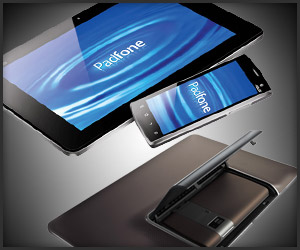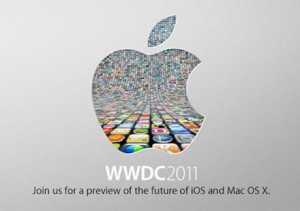Personal computing has seen some dramatic shifts in recent years, thanks in large part to the impact of social networking and its integration with entertainment media; the increased capability of smartphones and other portable devices; new high-speed networks and faster, smaller chips; the introduction of tablets and apps — and, of course, the success behind what many are currently labeling “The iPad Effect.”
 Consumers have responded with increased demands and expectations regarding the convenience in which they are able to access their information, entertainment and various forms of electronic communication. As CE manufacturers scramble toward meeting these expectations, we are starting to see some interesting new form factors and delivery systems, as well as a potential impact on our more traditional electronic devices.
Consumers have responded with increased demands and expectations regarding the convenience in which they are able to access their information, entertainment and various forms of electronic communication. As CE manufacturers scramble toward meeting these expectations, we are starting to see some interesting new form factors and delivery systems, as well as a potential impact on our more traditional electronic devices.
One of the ways this is playing out is in regards to the design, features, functionality (and competition) of tablets, laptops, netbooks, and PCs. And the prospect of additional changes resulting from cloud computing may accelerate the competition between devices. As we look forward, it should be worth keeping our eyes on the following trends and new products:
The Ultrabook
Intel is promoting a new category of laptops called the “Ultrabook” — a sort of hybrid laptop that incorporates the best features of tablets. The new designs (less than 0.8-inch thick) will be made possible by the latest 2nd-generation Intel Core processors. ASUS is one manufacturer behind the Ultrabook design and hopes to give Apple’s $999 MacBook Air a run for its money with the Ultrabook UX21 (featuring Intel’s i7 CPU and the new SanDisk U100 SSD). Intel predicts Ultrabooks could claim as much as 40 percent of the laptop market by 2012.
According to The Wall Street Journal: “A key goal is to deliver much thinner and lighter laptops, with mainstream price points and tablet-style features such as touchscreens and the ability to switch on quickly to let users call up websites without waiting.”
“They’ll cost under $1000, be extremely thin and portable, start up in seconds, be produced by a number of manufacturers and go on sale before Christmas,” adds Digital Trends in a similar write-up. “The emphasis on the portability and responsiveness of Ultrabooks shows that the world’s biggest chip maker is hoping to make consumers think twice about purchasing mobile devices such as the hugely popular iPad tablet.”
The Padfone
At Computex last week in Taipei, ASUS unveiled another new form factor, the “Padfone” — which Digital Trends describes as “a smartphone with a battery-equipped display dock that turns the device into a tablet.” The “pad” component does not function independently, but essentially serves as a tablet-shaped display with a dock, basically enhancing the phone’s functionality. In addition to a 10.1-inch screen to play with, the Padfone offers extended battery life, speakers, a keyboard, an I/O extender that will allow other devices to communicate with the phone, and functionality for the phone’s camera to keep working while docked. ASUS hinted at additional features that will be announced closer to the product’s planned Christmas release.
Will the Padfone, Ultrabook (or a similar new design) compete with current slate of tablets, laptops and desktop PCs? If the trends continue to push toward convenience, portability, speed, power, Web surfing and cloud services — the answer may be yes. At the very least, they may be the answer to netbooks. WSJ reports in response to the rise of thinner, more powerful devices: “The activity reflects both technology advances and growing pressure on personal-computer makers, particularly the rise of the iPad and other tablets. Goldman Sachs estimates that nearly 18 million of the touchscreen devices were sold in 2010, a figure it expects to swell to 60 million in 2011.”
iPad Tablet Competition
A number of manufacturers currently have tablet PCs on the market, but so far none of the devices (including the Samsung Galaxy Tab, Motorola Xoom or BlackBerry PlayBook) have been able to significantly compete with the growing success of the iPad, its many accessories and more than 65,000 apps. However, emerging tablets may impact the market by undercutting the price of the iPad. And with new, more powerful tablet chips from the likes of Intel, ARM and AMD, we may start to see some significant breakthroughs.
Taiwanese manufacturer Acer, for example, recently debuted its Iconia Tab A500 that runs Google’s Android OS. A $449 Wi-Fi version went on sale in April and a new model that works on AT&T’s 4G wireless network is scheduled for a summer release. “While it doesn’t beat either iPad overall, the Iconia Tab offers a decent alternative to Apple, especially for multimedia enthusiasts who want to display their content on a TV, PC or smartphone without additional gear,” reports WSJ.
If a new wave of price-conscious tablets can address the needs of consumers — particularly in regards to subscription- and cloud-based access to media content, video chats via services such as Skype or ooVoo, free and affordable new apps, and even potential glasses-free 3D displays (see the Eee Pad MeMO video demo from Engadget) — then the iPad (and other tablets) may start to feel the heat.
We may also see additional impact on the desktop PC market. It has been reported that PC manufacturers remain optimistic, viewing the recent dip in growth as a temporary bump in the road. However, in a report issued by Gartner this week, PC sales are not expected to grow as much in 2011 as earlier expected. The Gartner analysts blame the collapse of netbooks following the iPad’s release and added that, “regardless of the direct impact of the iPad and its kind, PCs no longer had the safety net they once did. They now had to compete against tablets, phones, set-top boxes and other devices as even the computers themselves were getting more specialized.”
Cloud Computing
A number of companies are gearing up for a new era of automated backup, synchronization, data storage and variety of cloud-based media services. There are those who believe this may be the final nail in the coffin for the desktop PC.
In a recent blog post commenting on Apple’s unveiling of OS X 10.7, iOS 5 and iCloud service — Robert X. Cringely addressed the possibility that Apple CEO Steve Jobs may be taking aim at killing Microsoft. Cringely writes, “Jobs is going to sacrifice the Macintosh in order to kill Windows. He isn’t beating Windows, he’s making Windows inconsequential.”
“We’re going to demote the PC and the Mac to just be a device — just like an iPad, an iPhone or an iPod Touch. We’re going to move the hub of your digital life to the cloud,” explained Jobs at the Apple Worldwide Developers Conference earlier this week.
Cringely contends that this is the bold kind of thinking that Microsoft lacks. With Apple leading the charge, he suggests Google may soon take the same approach, “…adding automated backup, synchronization and migration to Android and Chrome.” We may see increased competition between Apple and Google if Cringely is correct in his assertion regarding the company that gets our data in the cloud, gets us as captive customers forever. “Both companies will be grabbing for data, claiming territory, and leaving Microsoft alone to defend a desktop that will soon cease to exist,” he suggests.
Time will tell what impact these changes will have on the desktop PC, but if Cringely is right, it won’t be much time… “This transition will take at most two hardware generations and we’re talking mobile generations, which means three years, total.”
What else?
Are there additional “bigger picture” themes we should be watching for in this sector? Let us know your thoughts…
Related Electronista article: “Apple more profitable than Microsoft as netbooks plunge 40%” (4/28/11)
Related Electronista post: “Gartner: PC growth slowing to 9.3% through iPad effect” (6/8/11)
Related Forbes article: “Microsoft Gets Reprieve As Tablets Aren’t Killing PC Sales (Yet)” (6/1/11)
Related Wall Street Journal article: “PCs See Tablets’ Silver Lining” (6/1/11)
Related Network World article: “AMD finally enters tablet market with new chip” (6/1/11)
Related Wall Street Journal article: “PC Makers Push Into ‘Ultrabooks'” (5/30/11)
Related Digital Trends article: “PadFone officially revealed, ASUS hints at Ice Cream Sandwich and second-gen tablets” (5/31/11)
Related Engadget post (includes videos): “ASUS announces the Padfone (update: eyes-on!)” (5/30/11)
Related Wall Street Journal article: “Samsung Leans on Android” (5/31/11)
Related Reuters article: “Intel unveils laptops that include tablet features” (5/31/11)
Related Wall Street Journal article: “A New Tablet From Acer Challenges iPad on Price” (5/26/11)
Related Gizmag post: “ASUS announces glasses-free Eee Pad MeMO 3D tablet” (6/2/11)
Related O’Reilly Radar article: “The iPad’s ripple effect” (1/31/11)



